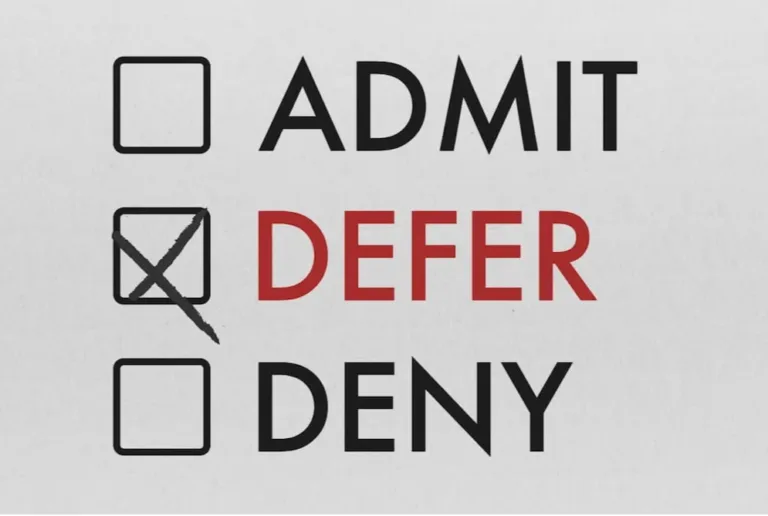
Dominate Your AP Exams like a Pro
Pittsburgh Prep’s Guide to Success
(Plus resources list for each AP test!)
Congratulations! You’ve decided to tackle the academic juggernaut known as the Advanced Placement (AP) exams.
You’re about to embark on a journey that will test your knowledge, stamina, and sanity. But fear not, dear reader, for we at Pittsburgh Prep are here to impart some awesome wisdom your way on how to conquer these exams like a pro.
Start Early, But Not Too Early
- Look, we all know procrastination is the real MVP here, but let’s try to reign it in just a tad. Start your preparation early enough that you’re not cramming the night before like it’s some kind of twisted rite of passage. Trust me, your future self will thank you when you’re not surviving on Red Bull and panic-induced adrenaline.
Make Friends with the Syllabus
- The syllabus is your roadmap to success. It tells you what topics you need to cover, what skills you need to master, and most importantly, how much time you have left to procrastinate. Seriously though, take the time to understand the syllabus for each of your AP exams. It’ll save you from wandering aimlessly through the vast wilderness of knowledge.
Embrace Your Inner Detective
- Sherlock Holmes ain’t got nothing on you, kid. When studying for your AP exams, it’s important to approach it like solving a mystery. Dive deep into the material, dissect it, analyze it, and then piece it all back together like some kind of academic Frankenstein. And don’t forget to don your metaphorical deerstalker hat while you’re at it.
Practice Makes… Less Terrible
- Let’s be real, no one enjoys taking practice tests. They’re like the broccoli of studying – you know they’re good for you, but they’re also kind of soul-crushing. However, practice tests are essential for getting a feel for the format of the exam, identifying your strengths and weaknesses, and mentally preparing yourself for the marathon ahead. So suck it up, buttercup, and start practicing.
Don’t Forget to Sleep (Seriously)
- I know, I know, you’ve got a million and one things to do and not enough hours in the day. But trust me when I say that pulling an all-nighter before your AP exam is a one-way ticket to Brain Fog City. Your brain needs rest to function properly, so do yourself a favor and get some shut-eye. Your future self will thank you when you’re not drooling on your exam paper.
Channel Your Inner Zen Master
- When exam day finally rolls around, it’s easy to let nerves get the best of you. But remember, you’ve put in the work, you’ve studied your butt off, and you are more than prepared to tackle whatever the exam throws your way. So take a deep breath, channel your inner zen master, and go forth and conquer.
Never Underestimate the Power of Good Old-Fashioned Note-taking
- Sure, you might think you’ll remember everything your teacher says, but let’s be real – your brain is a leaky sieve when it comes to retaining information. Take notes, highlight key points, make flashcards – do whatever it takes to cement that knowledge into your noggin.
Seek Help When Needed
- Don’t be afraid to ask for help if you’re struggling with a particular concept. Whether it’s your teacher, a tutor, or even a fellow classmate who actually understands what’s going on, there’s no shame in admitting you need a little extra assistance.
Succeeding on your AP exams is no small feat, but with a healthy dose of preparation, determination, and maybe just a touch of irreverence, you’ll be well on your way to acing those tests like a boss.
Specifically, here are some pro tips on the most popular AP Exams.
AP Calculus:
- Practice, practice, practice! Calculus is all about understanding concepts and applying them to solve problems. Work through as many practice problems as you can to familiarize yourself with the different types of questions you might encounter.
- Understand the underlying theory. Don’t just memorize formulas; make sure you understand why they work and when to apply them.
- Utilize resources like Khan Academy, Paul’s Online Math Notes, and textbooks to reinforce your understanding of calculus concepts.
AP Biology:
- Create visual aids such as diagrams, charts, and concept maps to help you organize and remember complex biological processes.
- Make use of online resources like Khan Academy, Bozeman Science and Crash Course Biology for engaging video explanations of key concepts.
- Practice with past AP Biology exams to get a feel for the types of questions asked and the level of depth required in your responses.
AP US History:
- Focus on understanding historical trends, themes, and cause-and-effect relationships rather than memorizing specific dates and events.
- Develop strong essay-writing skills, as the APUSH exam heavily emphasizes essay-based questions.
- Use resources like Adam Norris on YouTube and the College Board’s official APUSH course framework to guide your study.
AP Physics:
- Master problem-solving techniques by working through a variety of physics problems from different sources.
- Understand the underlying principles and concepts rather than relying solely on rote memorization.
- Utilize resources like Khan Academy, The Physics Classroom, and HyperPhysics to supplement your learning and reinforce difficult concepts.
AP Chemistry:
- Practice balancing chemical equations, understanding stoichiometry, and applying basic chemical principles to solve problems.
- Create flashcards to memorize key equations, constants, and chemical reactions.
- Utilize resources like Khan Academy, ChemGuide, ChemCollective, and the College Board’s AP Chemistry course description to deepen your understanding of chemistry concepts.
AP Literature:
- Read and analyze a variety of literary works from different time periods and genres to prepare for the multiple-choice and essay sections.
- Develop strong analytical and close-reading skills by annotating texts and practicing literary analysis essays.
- Use resources like SparkNotes, Shmoop, and LitCharts to supplement your reading and gain insights into literary themes, motifs, and techniques.
AP Language:
- Practice timed essay-writing to improve your ability to craft coherent and persuasive arguments under pressure.
- Familiarize yourself with rhetorical devices, logical fallacies, and argumentative strategies commonly used in written and spoken discourse.
- Use resources like Quill, Purdue OWL, and the College Board’s AP Language and Composition course description to hone your writing and analytical skills.
AP World History: Modern:
- Develop a strong understanding of historical themes, patterns, and global connections across different time periods.
- Use timelines and maps to visualize the chronological and spatial aspects of historical events and developments.
- Practice analyzing primary and secondary sources to deepen your understanding of historical contexts and perspectives.
- Utilize resources like Crash Course World History, Heimler’s History, and the College Board’s AP World History course framework to guide your study and review key concepts.
AP US Government and Politics:
- Understand the structure and functions of the US government, including the roles of different branches and levels of government.
- Memorize key political concepts, theories, and Supreme Court cases that are frequently tested on the exam.
- Practice writing free-response essays and answering multiple-choice questions to familiarize yourself with the format and content of the exam.
- Use resources like Crash Course Government and Politics, AP Classroom, and review books like Barron’s or Princeton Review to reinforce your understanding of US government and politics.
AP Psychology:
Familiarize yourself with the major theories, concepts, and research methods in psychology, including biological, cognitive, and social psychology.
- Practice applying psychological principles to real-world scenarios and analyzing case studies to develop critical thinking skills.
- Memorize key terms, definitions, and studies, but also focus on understanding the underlying theories and concepts behind them.
- Utilize resources like Crash Course Psychology, and review books to supplement your learning and reinforce difficult concepts.
AP Computer Science:
- Understand programming fundamentals such as variables, loops, and conditionals.
- Learn object-oriented programming concepts like classes, objects, and inheritance.
- Practice using data structures such as arrays, ArrayLists, and LinkedLists.
- Study algorithms for sorting, searching, and problem-solving.
- Work on free-response questions to develop coding skills and understanding of problem-solving strategies.
- Utilize online resources like Khan Academy, Codecademy, and Coursera for tutorials and practice.
- Join study groups or clubs to discuss concepts and problem-solving techniques.
- Seek help from teachers, classmates, or online communities when needed.
- Review sample questions and past AP Computer Science exams to understand the exam format and types of questions.
- Manage time effectively by creating a study schedule and prioritizing topics based on strengths and weaknesses.
- Stay confident and positive throughout your preparation journey.
By following these pointers and utilizing the recommended resources, you’ll be better prepared to tackle the unique challenges of each AP exam and increase your chances of success. You got this!










